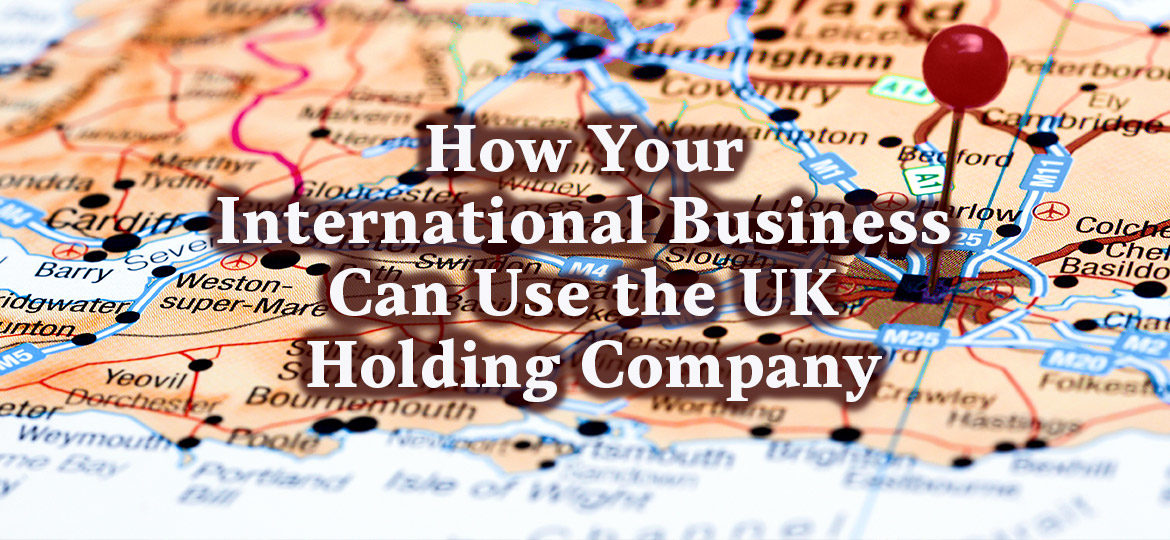
If your business has a significant international presence, and you consider establishing the global group structure, your attention will focus upon selection of jurisdiction. The ideal system will minimise withholding taxes on dividends, and other income like royalties or interest. It will also mitigate charges on capital gains.
The international structure ideally resides where banking and access to equity markets are comfortable, and there is adequate financial infrastructure at hands. The United Kingdom fits the set mentioned above of criteria very well and may present an excellent choice as your new jurisdiction for an international holding company.
What else may you consider, looking at the UK as your new business haven?
Corporation Tax
Corporation tax in the UK is low, comparing to other developed economies. Resident companies are liable to corporation tax on worldwide income and capital gains at a rate of 19%. The disposal of shares by a non-UK resident shareholder will not fall within the scope of corporation tax under normal circumstances.
Interest, Dividends or Royalties
Foreign subsidiaries may pay interest, royalties and dividends up to the UK holding structure. Such payments may become subject to a foreign withholding tax in certain jurisdictions. However, the UK is a party to more than 130 double taxation agreements. It is one of the largest networks in the world. Any withholding taxes may be reduced or eliminated by the relevant article of the double-taxation agreement.
Interest Deductibility
A UK corporate cannot deduct more than £2 Million of interest in a twelve-month period under the new legislation.
Inbound Dividends
The dividend should not be a deductible item in the country of the subsidiary paying the dividend — this is necessary to apply the relevant regime of exemption.
If a company has less then fifty employees, and a turnover of under 10M EUR, it is considered small. Small companies are fully exempt from corporation tax on dividends received from countries that have a double taxation agreement with the UK.
If your UK company is more massive, dividends paid on:
- Non-redeemable ordinary shares;
- Shares where the UK recipient controls the payor by virtue of shareholding, voting power or economic rights;
- Shares where the recipient (and their connected persons) holds less than 10% of the issued share capital of the paying company; and
- Dividends derived from transactions that are not designed to secure a reduction in UK tax.
Where dividends do not fall within either of these exemption regimes, then they will be subject to corporation tax.
Transaction Taxes
Transfers of shares or, of interests in shares in UK registered companies worth more than £1,000 are subject to stamp duty or stamp duty reserve tax at the rate of 0.5% with the tax being payable by the purchaser. Certain exemptions are available where the shares are traded on AIM and for intra group transactions.
Anti-Avoidance Rules
The UK tax code contains various anti-avoidance measures. These include the controlled foreign company (“CFC”) rules and transfer pricing and diverted profits tax (“DPT”). The CFC rules are designed to tax profits that are artificially diverted away from the UK so that they are generated in low tax jurisdictions. The laws do not impact profits arising from genuine economic activity taking place outside the UK.
Bilateral Investment Treaties
When deciding where to establish an international holding, you may consider the availability of bilateral investment treaties. It is often an issue where the UK company is making investments in subsidiaries in emerging market countries. For this purpose, the UK offers an extensive network of in-force treaties including with jurisdictions such as Russia and Kazakhstan.
For a holding company, the United Kingdom offers an attractive tax position supported by other commercial advantages. London is a convenient location as a leading financial centre, where you can raise finance, list, and operate an international business. Last but not least, it is easy and inexpensive to incorporate in the UK.


